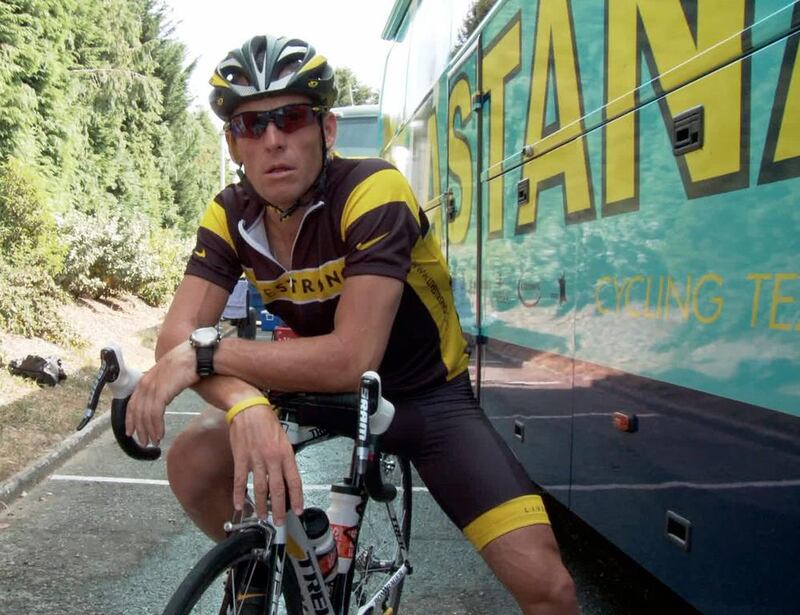LONDON // Disgraced cycling champion Lance Armstrong has said he will cooperate in a bid to discover the extent of doping in the sport so long as he is treated the same as his fellow drug cheats.
“If everyone gets the ‘death penalty’, then I’ll take the ‘death penalty’,” said Armstrong, 42, in an interview with the BBC World Service.
“If everyone gets a free pass, I’m happy to take a free pass. If everyone gets six months, then I’ll take my six months.”
After years of denials, cancer-survivor Armstrong — who has been stripped of his record seven Tour de France titles won between 1999-2005 — finally admitted in January he had used performance-enhancing drugs in an interview with US television personality Oprah Winfrey.
He said the fallout had been “tough” both emotionally and in terms of the damage to his estimated US$125 million (Dh459m) fortune from those seeking legal redress as a result of the lies he told about his drug-taking.
“It’s been tough,” he told the BBC.
“It’s been real tough. I’ve paid a high price in terms of my standing within the sport, my reputation, certainly financially because the lawsuits have continued to pile up.
“I have experienced massive personal loss, massive loss of wealth while others have truly capitalised on this story.”
Asked if he regretted the Winfrey interview, Armstrong replied: “I was going to have to answer the questions anyway.
“There were plenty of lawsuits in place that would have put me in the crosshairs.”
Brian Cookson, the new president of the UCI, cycling’s world governing body, has promised to set up an independent commission to find out the full extent of doping within the sport.
But Armstrong said raking up the past would not do cycling that much good.
“Do I think that this process has been good for cycling?” he asked. “No. I don’t think our sport has been served well by going back 15 years. I don’t think that any sport, or any political scenario, is well served going back 15 years. And if you go back 15 years, you might as well go back 30.”
Meanwhile Armstrong refused to say whether, as some have suggested, it was time for all sports to come to terms with performance-enhancing drugs by permitting thresholds rather than complete bans.
“That’s way above my paygrade to try to decide that,” he said. “I’ll let those people who pretend to be, or who are the experts, try to decide that.”
sports@thenational.ae
Follow us on twitter at @SprtNationalUAE





